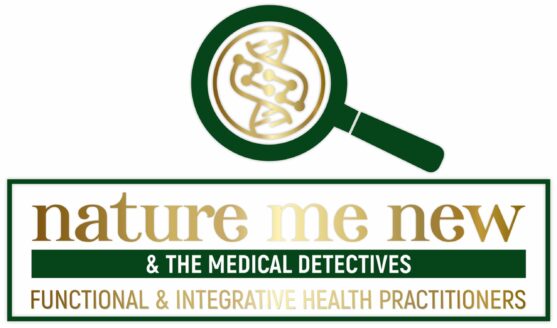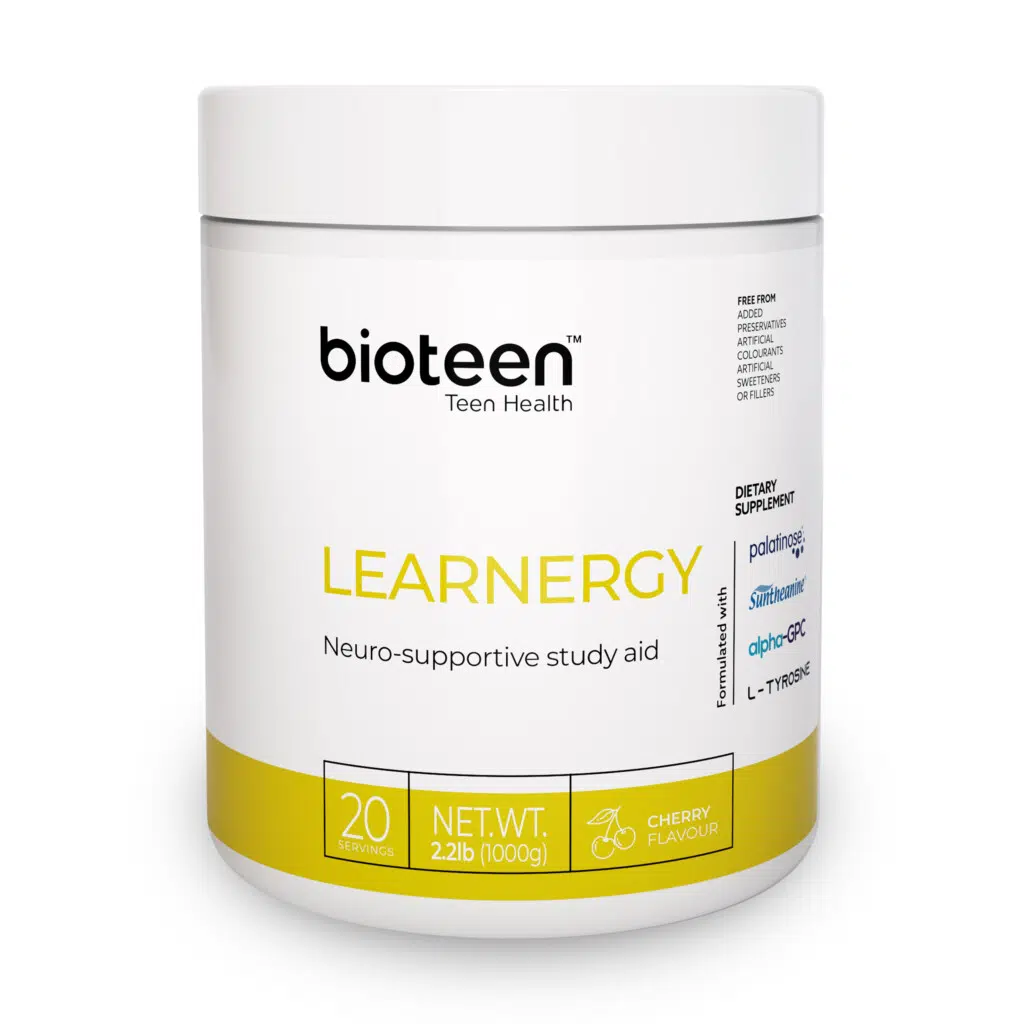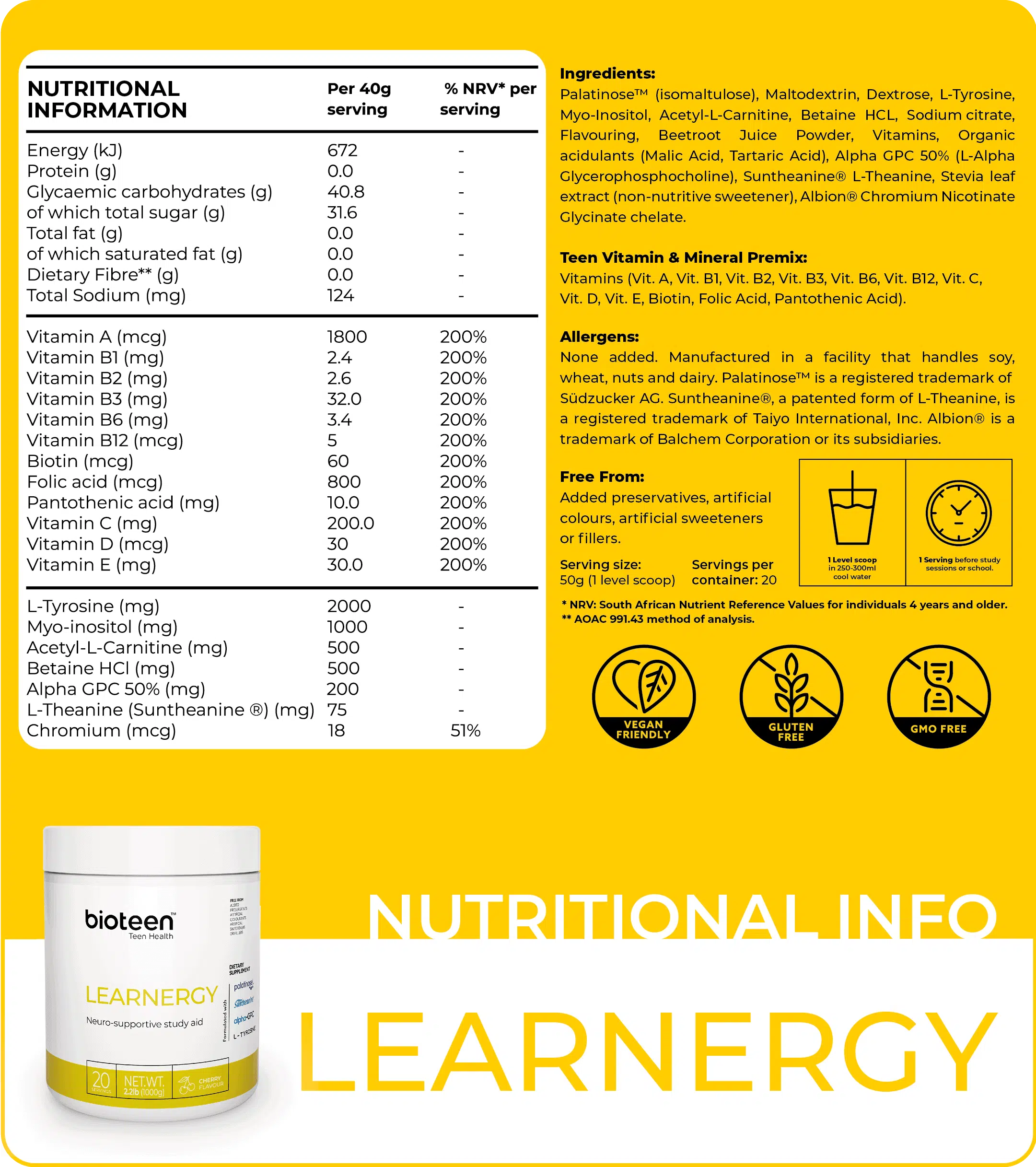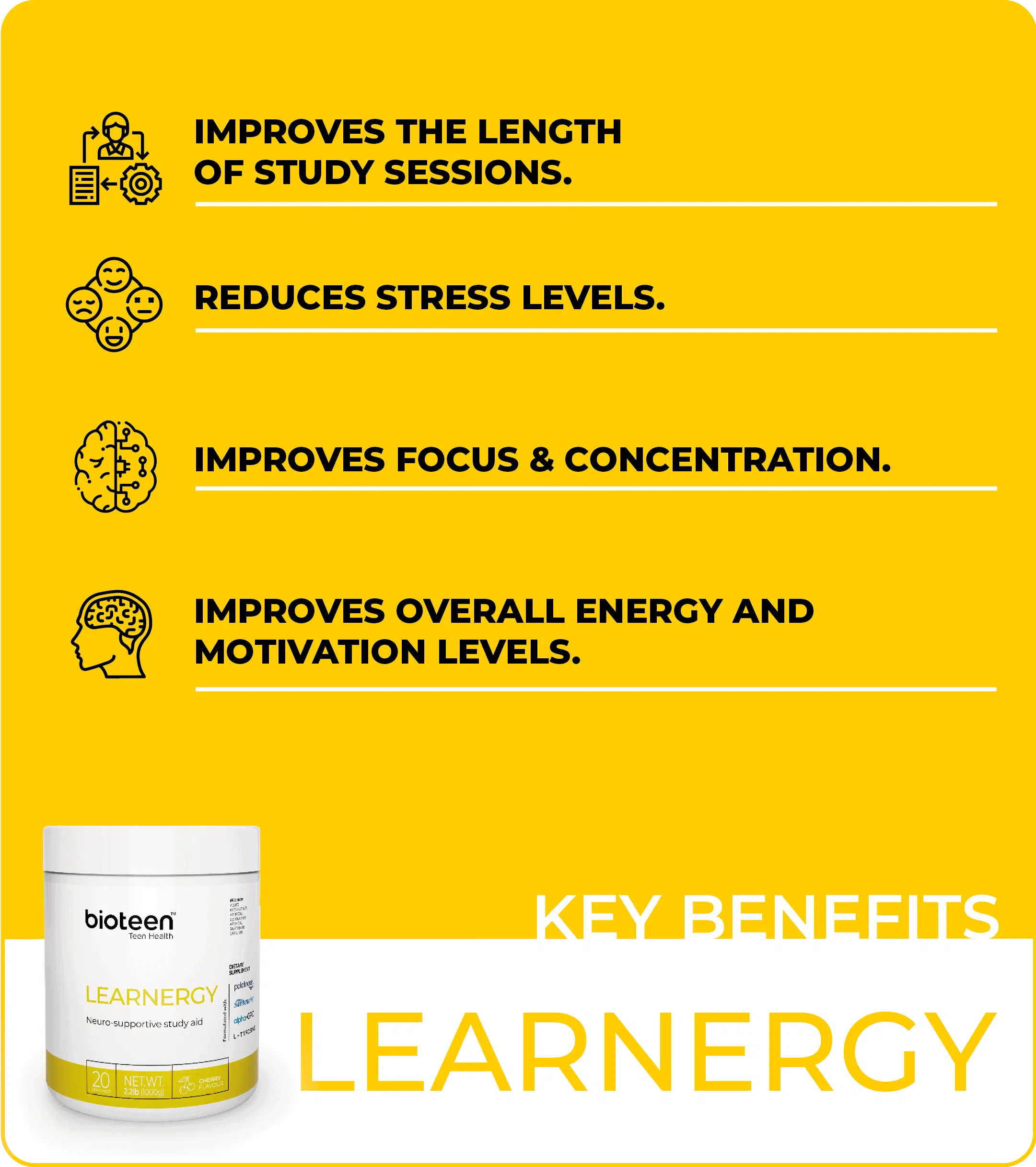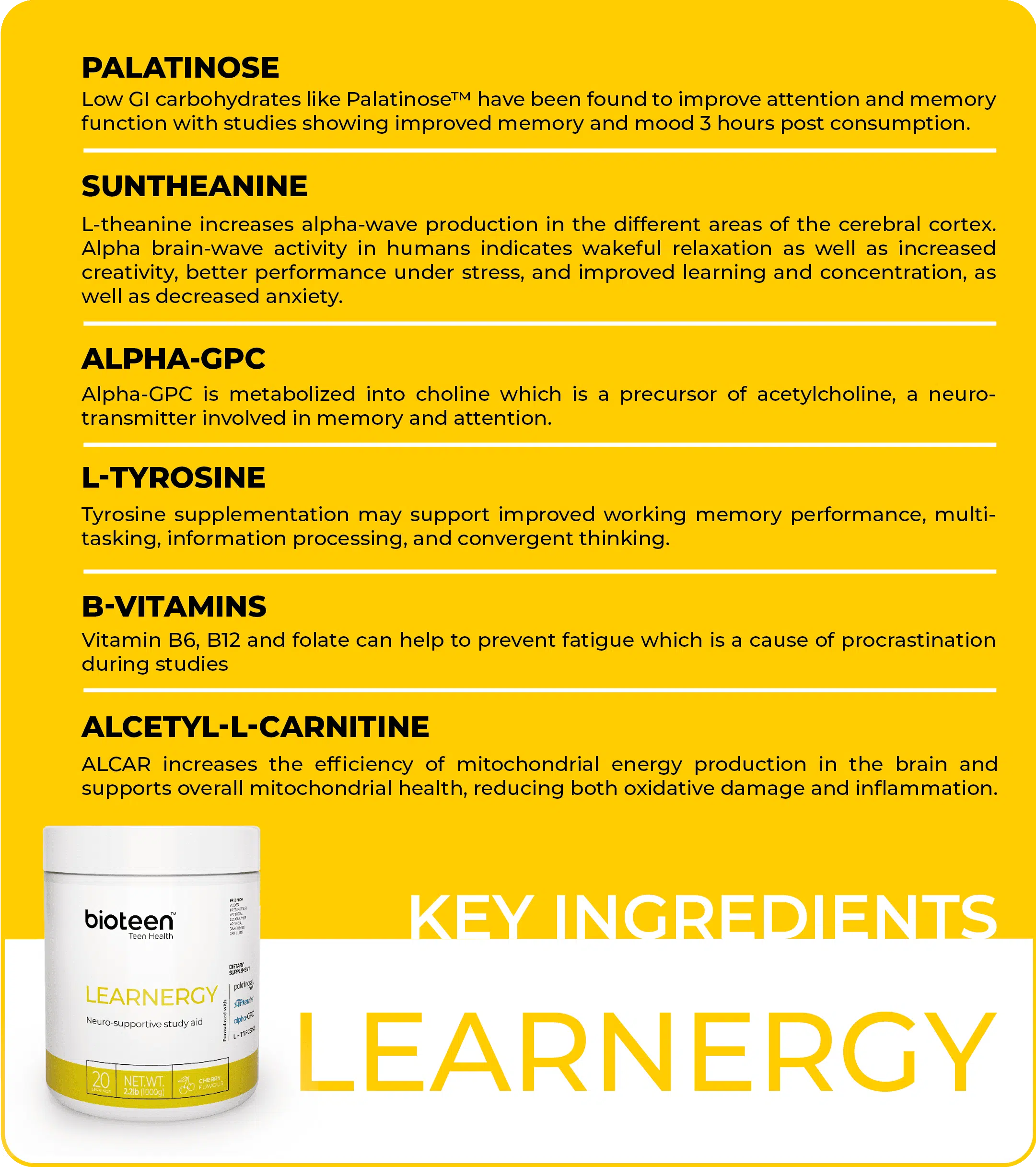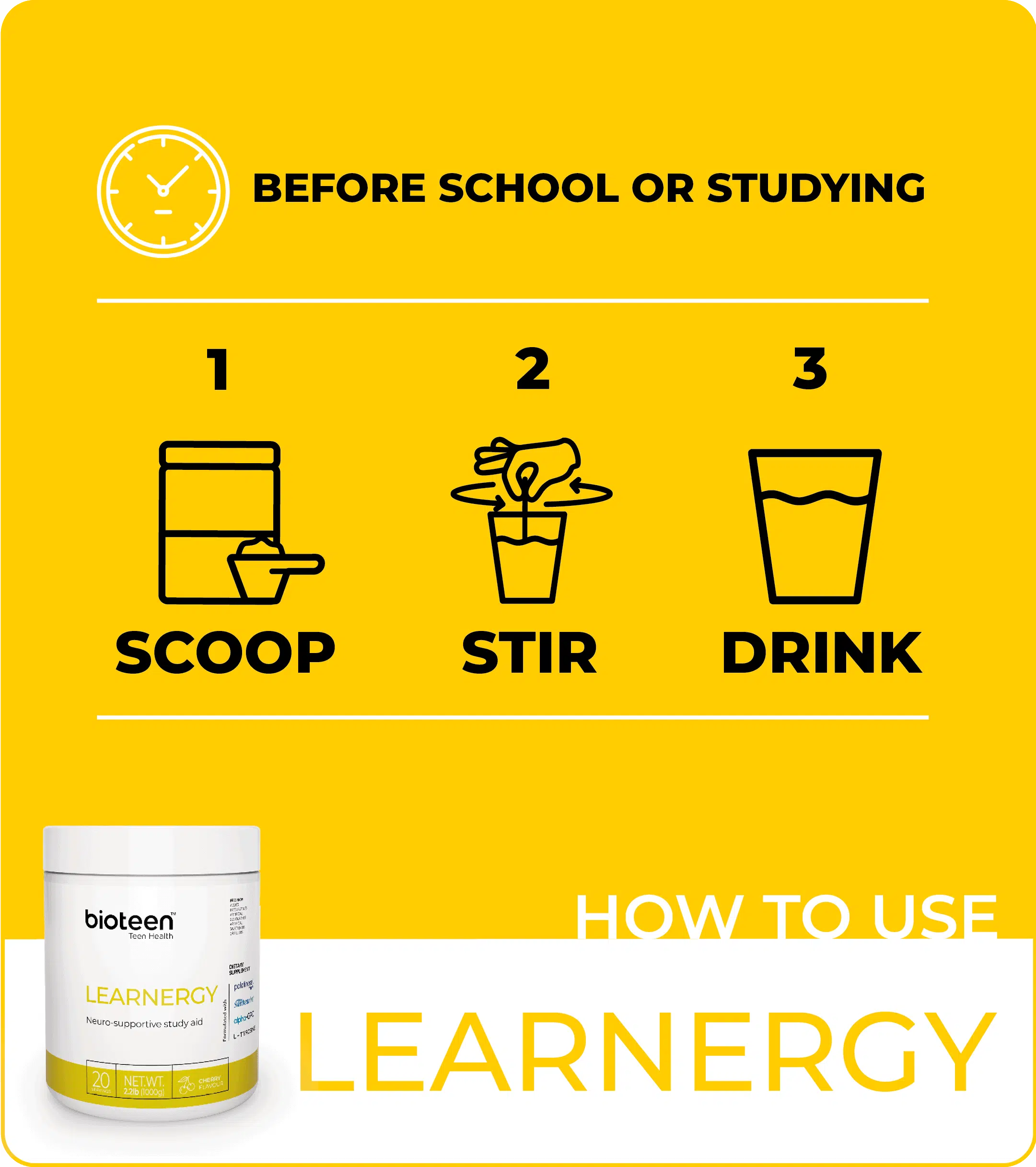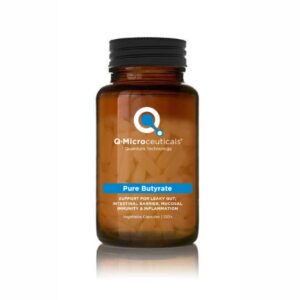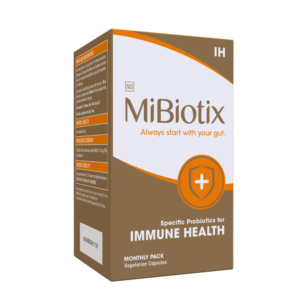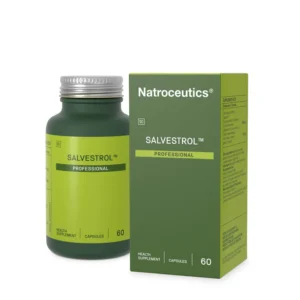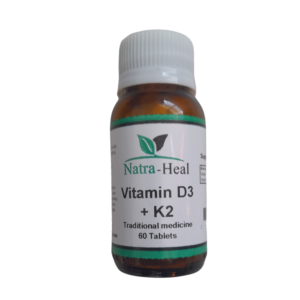In this day in age, teens have a lot going on, from school, to sports to growing their social network. With all these things on the go it’s not uncommon for there to be some gaps in their diet. At Bioteen, we recognise that this could be a problem, so we’ve created a range of all-in-one and stand-alone products that not only help to fill these gaps, but also use evidence based nutraceuticals to enhance various areas of focus that can help your teen reach their full potential. One of these areas of focus is academic performance.
Getting good grades doesn’t only feel good, but it is also an important step towards a successful future. In most cases, the grades you get in high school will determine what opportunities will be available to you after school. Besides optimising the structure of your teen’s study sessions as well as their study environment, there is also a range of clinically proven nutraceuticals that may improve your teen’s ability to learn. We have developed Learnergy using these ingredients, in order to have a meaningful impact. Let’s have a look at how all these ingredients work together to help us do that…
Brain energetics
Although the brain accounts for roughly 2% of your body weight, it uses a staggering 20-25% of an average adult’s energy, at rest! Interestingly, the brain’s primary source of fuel is glucose, with the adolescent brain using up to 120g/ day on average (1). This is one of the reasons why supplying the body with enough energy is very important, not just for general health, but for brain health as well.

With this in mind, it becomes clear that in order for the brain to work at its peak, we need to make sure that it is getting enough glucose on a regular basis, especially when rates of glucose utilisation go up, like during cognitively challenging periods (2,3). Does this mean that our teens should be eating tons of sugar to make up this amount? Definitely not! High sugar diets are usually not only low in nutrients, but instead of giving a sustained release of energy, they give short and sharp bursts. At Bioteen, we’ve taken this into account and that’s why we use a blend of intermediate and slow-release carbohydrates from glucose polymers derived from maize starch and Palatinose™ respectively. This blend means that when your teen uses Bioteen’s Learnergy, that their brains are getting sustained energy release which can lead to an improved mood (no more ‘hangry blood sugar crashes’) and also improved concentration and memory (4,5).

In addition to supplying energy in the form of glucose, Bioteen’s Learnergy also contains a number of key B-vitamins that are essential cofactors for the effective release of energy. Basically without enough of these vitamins, the amount of energy you consume would be irrelevant, because the body wouldn’t be able to access it (6).
Brain chemistry
The brain is made up of various neurons (aka brain/ nervous system cells) that communicate with one another via neurotransmitters, or chemical signalling molecules.

The type of signalling molecule produced can have a variety of effects on your teen’s academic performance by affecting their anxiety levels, ability to concentrate, memory and mood. Learnergy® contains effective doses of:
(1) Tyrosine, which is a precursor to dopamine, which is an essential neurotransmitter linked to a wide variety of functions including motivation and reward both of which can affect a person’s performance on cognitive tasks (7).
(2) L-Theanine (as Suntheanine®), which has an anxiolytic or anti-anxiety effect by displacing the excitatory neurotransmitter glutamate while also increasing levels of the inhibitory neurotransmitters GABA and glycine and increasing dopamine as well as your feel-good-neurotransmitter serotonin (8).
(3) Acetyl-L-carnitine which in addition to being involved in the production of GABA, also acts as a precursor to acetylcholine which is another inhibitory neurotransmitter that forms part of the parasympathetic nervous system (aka the relax and digest nervous system) (9,10).
(4) Various B-vitamins, which in addition to acting as co-factors in important energy production reactions, also act as cofactors for the formation of important neurotransmitters (including dopamine, serotonin and GABA) (11).
Protection against stress
Stress isn’t all bad, experiencing some stress is an important part of healthy development which helps your teen develop resilience. But, because the teen brain is still developing, teens may respond to stress differently than adults and so it is important that we prevent stress from becoming toxic. Toxic stress happens when your teen is chronically stressed which can put them at an increased risk for stress-related mental disorders like anxiety and depression.
This toxic, psychological stress can also increase the amount of oxidative stress experienced by the brain which can further increase the risk for certain diseases. To counteract this, Learnergy contains the antioxidant nutrients, acetyl-L-carnitine and vitamin A, C, D and E as well as betaine hydrochloride which specifically helps to maintain cell volume to reduce osmotic stress (which is protective against neurocognitive decline) (12,13).
Brain wave modulation
The brain produces electrical impulses that help the neurons communicate behaviours, emotions and thoughts with one another. They are classified according to their frequency into four types: alpha (less than 8–13 Hz), beta (more than 13 Hz), theta (less than 4–8 Hz), and delta waves (less than 4 Hz). Brain waves are generated in response to certain feelings (like relaxation or anxiety) but can also be stimulated to enhance those same feelings. Alpha waves are related to feelings of relaxation with an effortless level of alertness (these are ideal conditions for ‘flow’, or being ‘in the zone’) whereas beta waves are related to highly stressful situations or where there is a difficulty in mental concentration (14).
Bioteen’s Learnergy contains L-Theanine in the form of Suntheanine™ as well as Palatinose, which when consumed together produce exemplified results with regards to generating alpha brain waves. These are ideal because in addition to feeling relaxed but alert (which create an ideal setting for learning), they are not associated with feelings of drowsiness, which can be counterproductive (15-18).
The bottom line
Bioteen’s Learnergy contains a unique and targeted blend of nutrients and nutraceuticals to support concentration, memory and stress reduction. Available as a delicious and refreshing pre-study drink, Bioteen’s Learnergy is the perfect stimulant free study aid.
References
- Kuzawa CW et al. Metabolic costs and evolutionary implications of human brain development. PNAS September 9, 2014 111 (36) 13010-13015
- Magistretti PJ, Allaman I. A cellular perspective on brain energy metabolism and functional imaging. Neuron. 2015 May 20;86(4):883-901.
- Mergenthaler P et al. Sugar for the brain: the role of glucose in physiological and pathological brain function. Trends Neurosci. 2013 Oct; 36(10): 587–597.
- Micha et al. Glycaemic index and glycaemic load of breakfast predict cognitive function and mood in school children: a randomised controlled trial. Br J Nutr. 2011 Nov; 106(10):1552-61.
- Cooper SB, et al. Breakfast glycaemic index and cognitive function in adolescent school children. Br J Nutr. 2012; 107:1823– 1832.
- Young LM. A Systematic Review and Meta-Analysis of B Vitamin Supplementation on Depressive Symptoms, Anxiety, and Stress: Effects on Healthy and ‘At-Risk’ Individuals. Nutrients. 2019 Sep; 11(9): 2232.
- Goldman-Rakic, et al. 2000. D1 receptors in prefrontal cells and circuits. Brain Res. Rev. 31, 295–301. 35. Wurtman, R.J et al. 1981. Precursor control of neurotransmitter synthesis. Pharmacol. Rev. 32, 315–335.
- Sheffler Z, Reddy V, Pillarisetty L. Physiology, Neurotransmitters [Internet]. Ncbi.nlm.nih.gov. 2022 [cited 25 August 2022]. Available from: https://www.ncbi.nlm.nih.gov/books/NBK539894/
- Jones LL, McDonald DA, Borum PR. Acylcarnitines: role in brain. Prog Lipid Res. 2010 Jan;49(1):61-75. Review
- Kuratsune H, Yamaguti K, Lindh G, Evengard B, Hagberg G, Matsumura K, et al. Brain regions involved in fatigue sensation: reduced acetylcarnitine uptake into the brain. Neuroimage 2002;17:1256–65.
- Kennedy D. B Vitamins and the Brain: Mechanisms, Dose and Efficacy—A Review. Nutrients. 2016;8(2):68.
- Zhang M, Zhang H, Li H, Lai F, Li X, Tang Y et al. Antioxidant Mechanism of Betaine without Free Radical Scavenging Ability. Journal of Agricultural and Food Chemistry. 2016;64(42):7921-7930.
- Wang L, Muxin G, Nishida H, Shirakawa C, Sato S, Konishi T. Psychological Stress-Induced Oxidative Stress as a Model of Sub-Healthy Condition and the Effect of TCM. Evidence-Based Complementary and Alternative Medicine. 2007;4(2):195-202.
- Abdou A, Higashiguchi S, Horie K, Kim M, Hatta H, Yokogoshi H. Relaxation and immunity enhancement effects of γ-Aminobutyric acid (GABA) administration in humans. BioFactors. 2006;26(3):201-208.
- Nagai Y et al. Effect of Palatinose administration on alpha-1 brain waves in human volunteers. Food Sci. Technol. Res., 9 (4), 357–360, 2003.
- Kobayashi, K, Nagato, Y, Aoi, N, Juneja, L, Kim, M, Yamamoto, T. Effects of L-theanine on the release of α-brain waves in human volunteers. Nippon Nogei Kagakukaishi 1998, 72, 153– 157
- Juneja, R.; Djong-Chi, C.; Tsutomu, O.; Yukiko, N.; Hidehiko,Y. L-theanine—A unique amino acid of green tea and its relaxation effect in humans. Trends Food Sci. Technol. 1999, 10, 199–204
18. Song C.H, Jung J.H, Oh J.S, Kim K.S. Effects of Theanine on the Release of Brain Alpha Wave in Adult Males. Korean Journal of Nutrition 2003 Nov;36(9):918-923.
